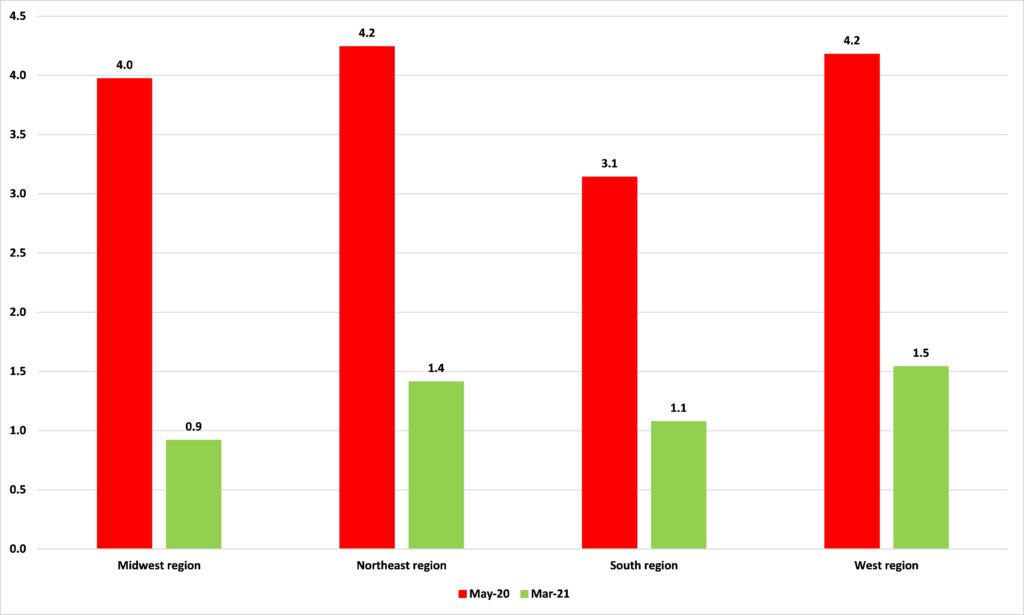More jobs open in Midwest than unemployed workers — time for Minnesota to end UI “enhancements”
The strong economic recovery from the COVID-19 recession is threatened by constraints on the supply side of the economy. Among these, though certainly not the only one, is a labor market that sees lots of job openings coexisting with elevated levels of unemployment. A growing body of evidence suggests that increased federal unemployment insurance payments are to blame for this. As I wrote back in January:
If unemployment insurance offers people an income comparable to working, many of them will opt not to work.
As the pandemic hit and federal and state governments shut down economies, there was a good case for them to compensate those workers they were preventing from working. But, as these economies reopen, there is no longer any reason to maintain these emergency measures.
Figure 1 shows the number of unemployed workers for each open job by Census Region for May 2020 and March 2021, as given by the Bureau of Labor Statistics. This gives you some idea of how ‘tight’ the labor market is, i.e., how hard it is to find a job. It shows that, in May last year, in the Midwest region (which includes Minnesota), there were four unemployed people for every open job. By March, that number had fallen to 0.9 — in other words, there were more open jobs than there were unemployed workers. Given these numbers, there is no reason for state governments in this region to keep paying the $300 a week federal ‘enhancement’.
Figure 1: Number of unemployed people per open job

Source: Bureau of Labor Statistics
A number of states are now planning to stop paying out the $300 federal enhancement, which expires in September. A recent report by recruitment site Indeed noted that:
Job search activity rose, relative to the national trend, in states that announced they’ll prematurely end federal unemployment insurance benefits.
As more and more people are vaccinated and economies return to normal, this makes sense and Minnesota should follow suit.
John Phelan is an economist at the Center of the American Experiment.